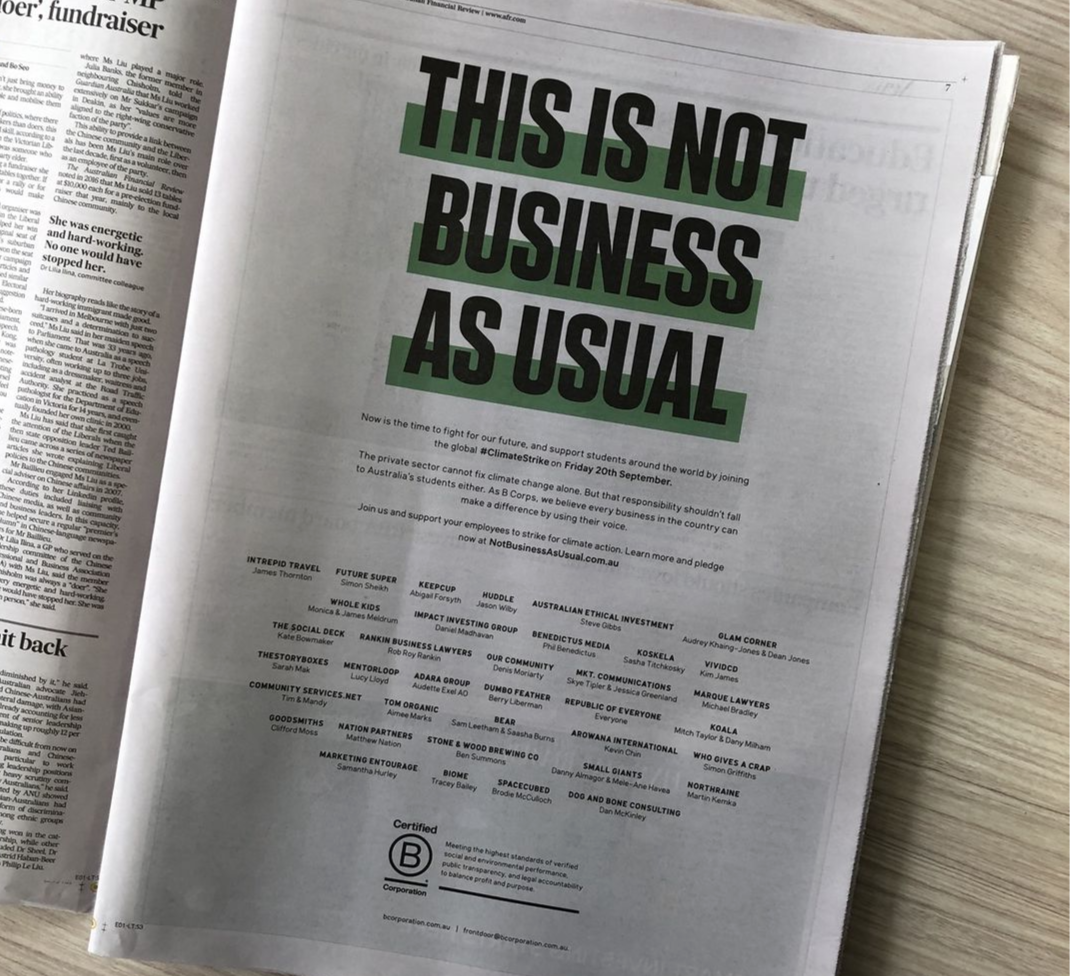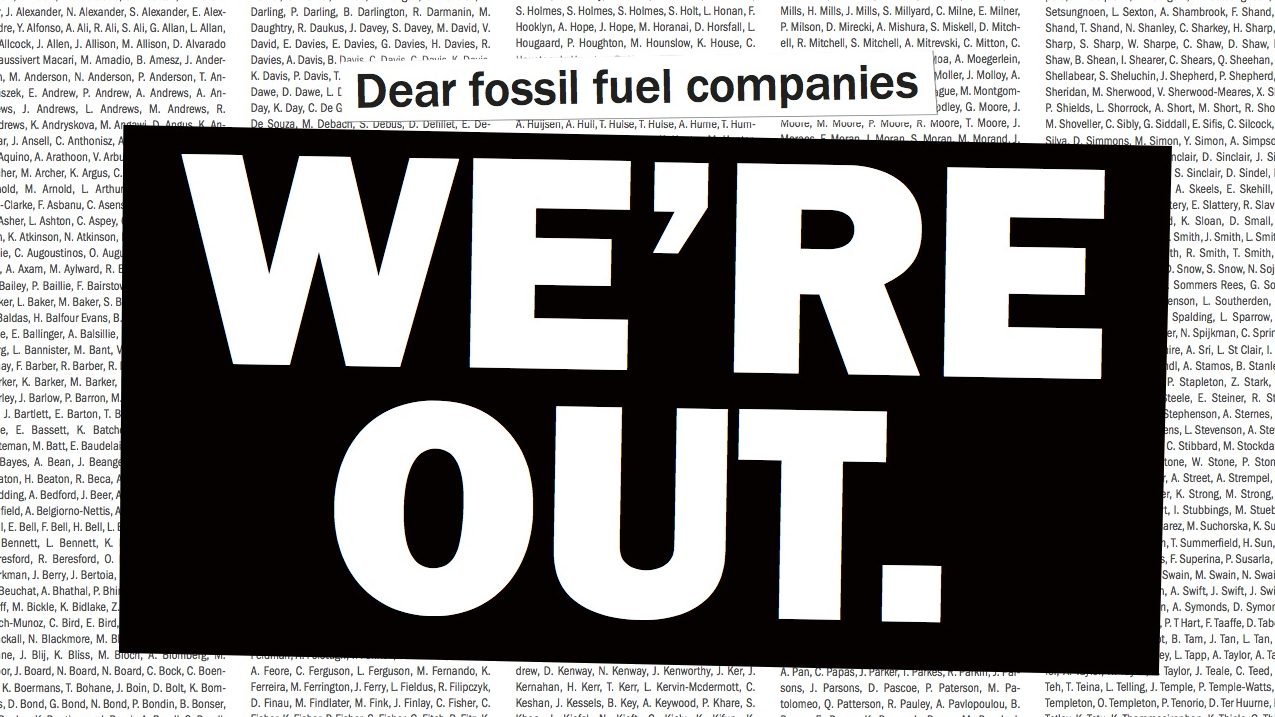Launched in 2014, Future Super’s mission is to create a prosperous future free from climate change and inequality. Their superannuation products exclude investments with harmful impacts on people and the planet, and they seek investments that create a better future.
Future Super appeared on the 2021 Best for the World lists for both Customers and Governance, recognising the value they are providing to their members and the transparency of their operations. To celebrate, we spoke with Future Super’s Diversity & Inclusion Coordinator Lydia Ho to get an inside look at the impact-focused superannuation fund.
Watch the conversation here, or read the full interview below.
We believe that our super products are game-changing for our customers because of their impact in contributing to climate solutions and reducing emissions.
Lydia: Future Super is not an ethical super fund; we’re an impact super fund. We invest members’ money into companies that create positive, impactful, real world change. We have the long-term goal of building a future worth retiring into.
B Lab: Future Super is a fairly well-known brand. Do you see that customers are more engaged with the brand because of those values?
Lydia: I would say so. Traditionally, we would have been seen as having an activist vibe about our business, and we have been behind some really impactful campaigns, including the Not Business as Usual campaign back in September 2019 and Not Business as Usual mark two this year as well. We’re getting a lot of real interest in the values that we have as a business and customers are really excited about what we’re doing in that space.

B Lab: What does that activism look like in the workplace? Is that something that you feel is really lived by all of the employees at Future Super?
Lydia: Definitely. I think it’s in the culture of the staff that we bring on. It’s a very authentic business. I would say that there’s no one that is misaligned. In our values, we’re very much purpose-aligned. We’re not greenwashers, so we really are living what we see as our ideals and how we want to impact in an authentic way.
B Lab: How does the reporting and the transparency that Future Super has give people the confidence in their investments, and that isn’t greenwashing?
Lydia: In terms of our impact reporting, it’s rigorous, independent and verified impact reporting. We’re reporting on our carbon footprint and our supply chains. That’s one area where I believe that we’re standing out from people who we think are doing as they’re saying, but actually it’s not borne out in reality.
One of the things that we’ve been working on in this space is financial transparency for our employees. We’re actually starting to share the gender and cultural diversity pay gap in the business. We also have employee satisfaction (eNPS) broken down by gender, seniority, cultural diversity, and now age.
We really believe that this transparency will help employees to believe in our product and stick with the company.
We’ve implemented a whistleblowing policy to guide employee disclosure too.
B Lab: When you implement something like showing and reporting on the gender or cultural diversity pay gap within Future Super, what types of changes are you seeing at a staff level?
Lydia: We have gender parity at the moment in terms of gender diversity. In terms of pay gap, we’re doing okay. Often it’s these issues that businesses never talk about, so it’s opening up the dialogue.
Putting these things on the table for staff to have the confidence to talk about with the managers — that open dialogue is the key to starting a cultural change, particularly around the gender pay gap.”
B Lab: Is there a way for customers to feed questions to you about where their money is going from an investment point of view, or about the things that you’re doing internally? Is there a customer feedback mechanism there?
Lydia: Yes, there is. We run surveys with customers annually. In terms of increasing our transparency, we’re always keen to hear any feedback whatsoever about improving our product and we’re trying to share more about what we’re doing internally.

B Lab: What’s something that you would like to see become the norm for all businesses, or at least all superannuation funds?
Lydia: To put Reconciliation as a central plank of a business’s objectives and key results. I think it’s not a hard thing to do.
If you have the staff that are passionate and really believe In making change, then I think anything is possible.
But the tide is turning in terms of recognising our First Nations peoples. If we could do that in any small way in a business, then I think the tide will turn.
B Lab: What’s something that you’d like to make possible at Future Super in the next one, five, or ten years
Lydia: Currently, we don’t have any Aboriginal and Torres Strait Islander employees. We actually have a stretch goal of 3% of our employees by April next year. I would like to see even half of that in 12 months time. It’s a hard thing to do, but my moonshot is to have greater representation of Aboriginal and Torres Strait Islander employees. Even more so, an Aboriginal or Torres Strait Islander board member. That would be ace to have.
Interviews have been edited for clarity and length.

